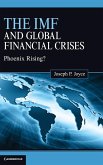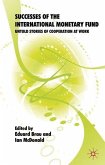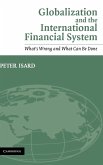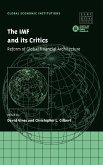Economic globalization has given rise to frequent and severe financial crises in emerging market economies. Other countries are also unsuccessful in their efforts to generate economic growth and reduce poverty. This book provides perspectives on various aspects of the international financial system that contribute to financial crises and growth failures, and discusses the remedies that economists have proposed for addressing the underlying problems. It also sheds light on a central feature of the international financial system that remains mysterious to many economists and most non-economists: the activities of the International Monetary Fund and the factors that influence its effectiveness. Dr Isard offers policy perspectives on what countries can do to reduce their vulnerabilities to financial crises and growth failures, and a number of general directions for systemic reform. The breadth of the agenda provides grounds for optimism that the international financial system can be strengthened considerably without revolutionary change.
Hinweis: Dieser Artikel kann nur an eine deutsche Lieferadresse ausgeliefert werden.
Hinweis: Dieser Artikel kann nur an eine deutsche Lieferadresse ausgeliefert werden.
'Peter Isard brings deep scholarship and experience to the bewildering array of problems surrounding the brave new world of globalized international finance. No single volume I know does a better job of evaluating the current international financial system and its history, and drawing sensible implications for national and global policy. This book will be required reading for every serious student of the world economy.' Maurice Obstfeld, University of California, Berkeley








